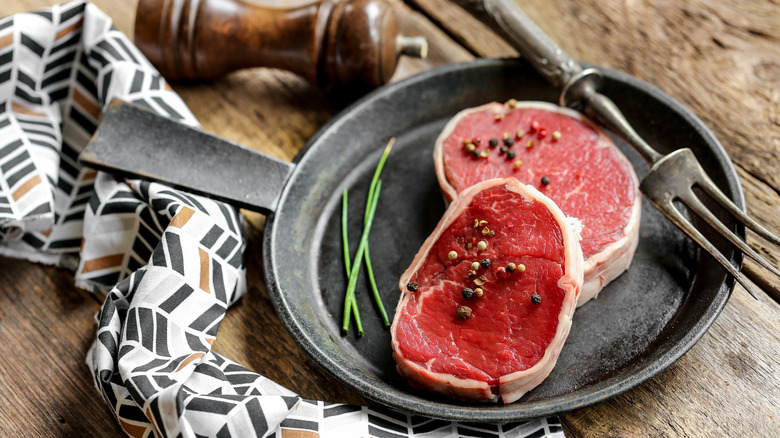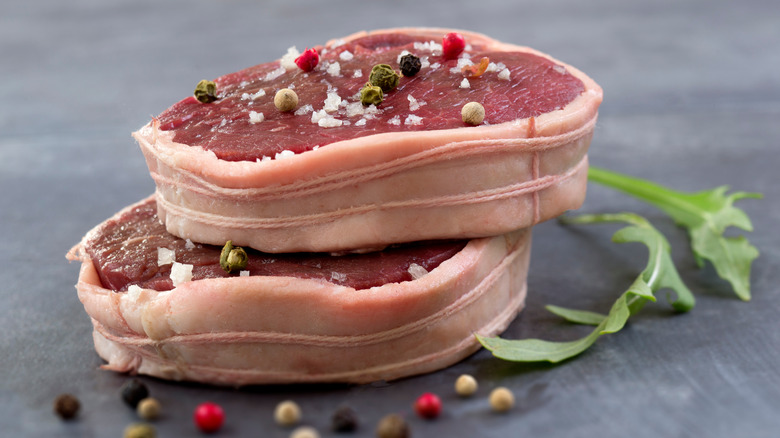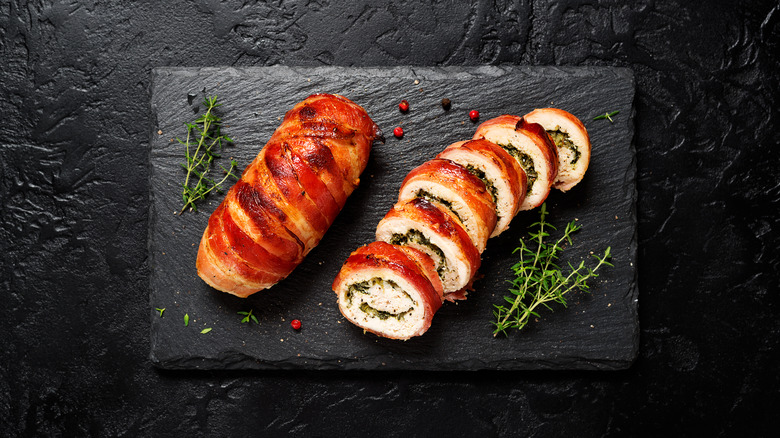The Makeshift Cooking Twine Hack Perfect For Meat Lovers
Ask any professional, and they'll likely tell you that butcher's twine is an essential tool in any kitchen. However, it often gets overlooked, or worse, it can be a pain to work with. After all, trussing meat correctly does take some practice. But one trick floating around the internet can help you sidestep messing with the cotton string altogether. Even better, you may already have what's needed in your fridge — bacon.
Those tasty pork strips aren't just an excellent ingredient. They also make a fantastic replacement for stubborn twine. The best part is the fact that bacon doesn't have to be removed from the meat after cooking. Using bacon to wrap and tie meats is part of a long-honored tradition known as barding, which brings fat to the cooking process and helps to keep the meat moist. Moreover, many people are happy to keep bacon around to eat, anyway. So, this technique is sure to be a win-win.
How bacon can get the job done
A piece of meat that's untied may hit the oven while it's still relatively loose. If the meat is left to its own devices, it'll take whatever form it feels like while firming up under heat. This could lead to an unappealing appearance and an imbalanced cooking process that can dramatically affect the texture and taste of your meal. After all, whether you're cooking an excellent medium-rare filet mignon or roasting up a turkey, you want to hit just the right stage of doneness.
Yet, unless you remind yourself, that piece of you've used to truss up the food might get lost in the mix when preparing and serving your dish. And that isn't just a concern for home cooks, either, as professional chefs have admitted to the same issue. This is at least partially why using bacon instead of twine is such a fantastic idea. That said, there are some things you should know before wrapping a rasher around a cut.
Get the most out of your bacon
Since this trick relies heavily on traditional barding methods, it helps to keep a few things in mind. First, while almost everyone loves bacon, nobody likes it raw. To avoid getting raw bacon while barding, be selective about the variety of bacon you use. Namely, use thinner slices that will cook more quickly. Barding is done for two reasons: to moisten the meat as the fat melts and give it some extra savory flavor. Because of these two factors, select bacon that is slender enough to cook through and which will give you the most fat for the effort.
Secondly, some recipes and butchers advise that you tie off the bacon with twine or pin it down with toothpicks before cooking. This is intended to keep the bacon from scrunching up in the heat, but this defeats the purpose of this nifty hack and is potentially needless. Raw bacon tends to give a little, so you should be able to stretch it and tie or tuck the ends in to fasten it. Granted, don't get too carried away, as even bacon has its limits.


